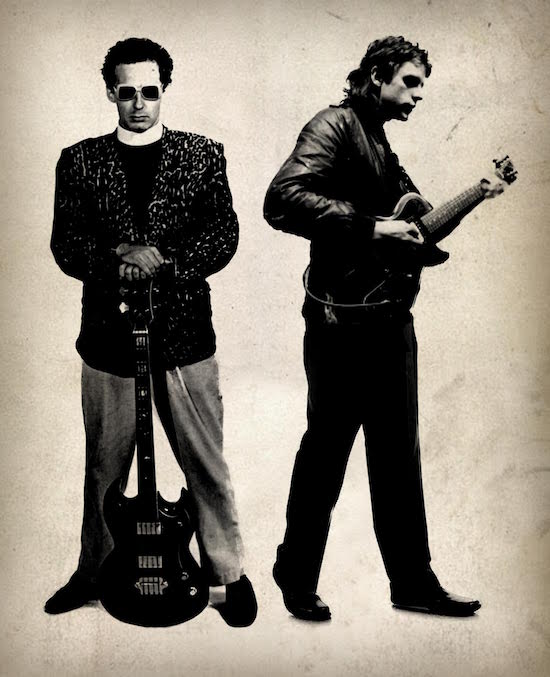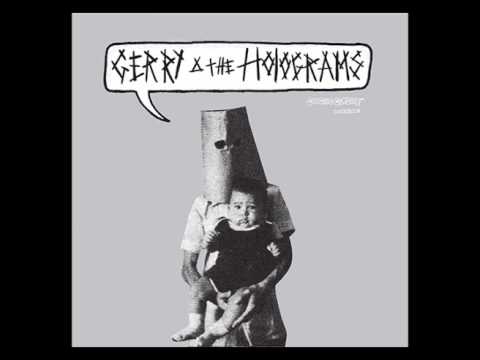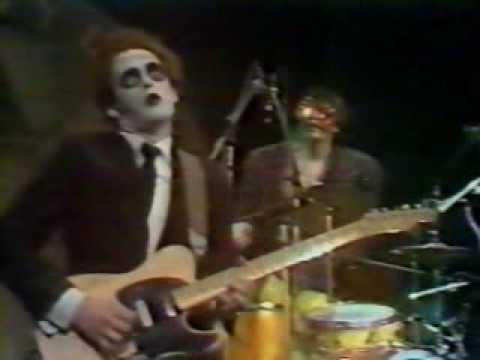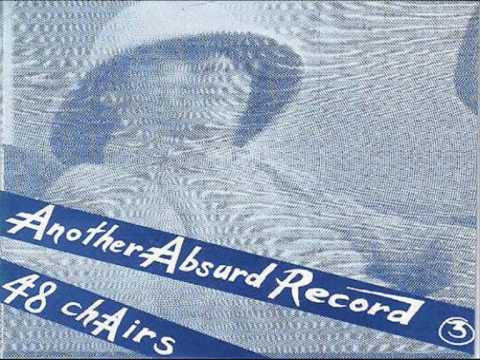"This is where the blood of the working classes ran red in the street," Christopher Paul Lee, or CP, says staring intently at the ground around Bexley Square in Salford. He’s referring to the anti-employment and benefit cuts march that took place in 1931 and ended in a fierce clash with mounted police. Once sat down inside a neighbouring pub he quietly says, "Aleister Crowley’s grandson is sat over there, can you tell which one he is?" asking me to pick from a selection of middle-aged men, all sat alone nursing pints on a Monday afternoon. We finally settle in the Kings Arms, a place CP has been drinking in for decades and he freely recalls tales of dead landlords, George Orwell passing through, shotguns kept under the bar during the Manchester gang wars and a time in which the pub was run so poorly the drinkers had to have a whip around to pay for the beer delivery as it arrived.
CP’s passion and knowledge for his own city is blisteringly apparent within minutes of meeting him. The workmanlike name badge that reads ‘loiterer’ on his jacket suggests he’s spent a great deal of time hanging on street corners and soaking up the life and history of these streets. Yet his own role and impact in the history and culture of Manchester is a tale less well known.
CP was initially a member of the psychedelic rock group Greasy Bear before going on to form Alberto y Lost Trios Paranoias, or more commonly known as the Albertos, a Dada-influenced comedy rock group who would rework tracks such as The Velvet Underground’s ‘Heroin’ into a headache medicine take of ‘Anadin’. After three albums between 1976-78 they disbanded and other members of the group, such as Bruce Mitchell and Tony Bowers, would go on to play with the likes of Durruti Column and Simply Red. CP was a compere at Manchester’s Band On The Wall venue where he met musician John Scott, who was key in shaping the early output of fellow celebrated Manchester namesakes John Cooper Clarke and Jilted John.
The pair joined forces and created the mysterious alter egos of Gerry & the Holograms, releasing their debut two-track 7" ‘Meet The Dissidents’ in 1979 on Absurd records, which is a gloriously wonky delve into early electro pop. They followed this up with another two-track 7" ‘The Emperor’s New Music’ which was a conceptual and unplayable anti-record, with the vinyl actually glued stuck inside the sleeve. Should anyone have been able to pry it free and scrape off all the lashings of glue then they would have not found any music from Gerry & the Holograms on it because none existed.
Notably this destructive sleeve design concept predates Peter Saville’s design for The Durutti Column’s debut album, which was issued in a sandpaper sleeve to damage records with every removal and insertion, but this is not the only instance in which Gerry & the Holograms have drawn comparison with a Factory Records artist. The group’s debut track ‘Gerry & the Holograms’ has long drawn comparisons to New Order’s ‘Blue Monday’ (which would come years later) and in 2015 The Guardian included the track in a piece entitled ‘The Great Rock’n’Roll Swindle – 10 Classic Stolen Pop Songs From Saint Louis Blues To Blue Monday’.
Revered by the likes of Frank Zappa and with tentacles that spread out far into the historical canals of Manchester’s underground music scene, CP and Scott ostensibly disappeared from music soon afterwards. Now, almost 40 years since their very brief existence, the personal vaults of John Scott have been raided and his master tapes of all the original material that was created by the duo between 1978 and 1983 as Gerry & the Holograms have emerged. The great chunk of these have never been heard or released before. Put together as an album, the music still feels mightily futuristic in its explorations and whilst still clearly being outsider music. The songs remain unshakably palatable because the spiralling, sputtering electronics that jump from them like sparks from the machinery of some mad professor locked away in a lab, are essentially richly melodic and infectious. The Complete Unreleased LP came out via Manchester’s excellent Finders Keepers records recently and here label boss Andy Votel interviews CP about the beguiling and unexplored world of Gerry & the Holograms.
Andy Votel: How does it feel to be finally liberated from the Manchester music mafia witness protection programme and claim your full title as the lead singer of Gerry & the Holograms?
CP Lee: It is intensely liberating finally to have the veil torn away from the secret that is Gerry & The Holograms. Now we stand firm, proud, upright and strong coming into our own, rather than [hiding] behind the faces of New Order.
There you go, straight in there early doors with that. So, would you say you are the second most famous Christopher Lee?
CPL: I’m the most famous Christopher Paul Lee.
The most famous living Christopher Lee then?
CPL: The actor Christopher Lee and I were in a pub in London when he was recording an LP. He went to the bar and the Australian bartender said, "Ah excuse me mate, are you Christopher Lee?" and he said, "No, he is" and pointed at me. That was the greatest moment of my life. The second of course is having the Gerry & the Holograms album come out 35 years later.
That would make the third most exciting part of your life being that you were once asked to join the Mothers of Invention at one point?
CPL: This came about through a convoluted route. There was somebody working at head of publicity for CBS, I think, and Zappa was playing Wembley Arena and was looking for a replacement singer for Napoleon Murphy Brock. I was approached to go and do a rehearsal with Zappa on the afternoon of the gig. I’m trying to think of the date but it was probably synchronous with us doing ‘Gerry & The Holograms’ which became one of Zappa’s favourite tunes, along with other John Scott tunes by 48 Chairs. I went along, sang and we all agreed that I sounded too much like Frank Zappa. Also, i knew that I’d have to leave the Albertos to do the gig and we were doing very well at that point. Also, notoriously, he would get rid of everyone every two years and I would have just been the bloke who was on a couple of Zappa albums. He barely said a word actually, a very interesting bloke.
It would have been a bit of a "Tonight Matthew i’m going to be Frank Zappa…" You should have got in touch with Matthew Kelly.
CPL: I shouldn’t have done it in that style but you can’t help it. When he said, "What numbers do you know?" and I said, "’Camarillo Brillo’", and he said, "Okay, let’s hit it." I just couldn’t get my own voice out because I’ve heard him so often, but it was fun. Then later we heard the Radio 1 show he did of his top 20 records and we heard, "And here’s a little group from Manchester, England…" We just couldn’t believe it because he couldn’t have known that that was me, so it was a fantastic accolade.
Do you think the Zappa influence from things like Reuben And The Jets and various fake names might have had some contribution to the title Gerry And The Holograms?
CPL: Tracing Gerry you’ve got to go through the avant-garde streak of the Albertos. We were listening to weird shit before weird shit had even happened. When the group started the Albertos were a comedy sketch group, we did comedy scripts as though we were on the radio, we believed we were on the radio. We didn’t want to play music because we hated being in bands and the music business. This is why we were punks three years before punk [happened] because when we did play music it was a send up.
Musically, our favourite albums included Songs Of The Humpback Whale because in the Warner Bros catalogue it said ‘Artists: Various’ and you cannot beat something like that. Another one was Explorer Songs Of The Jivaro Indians Of The Amazon Basin, because the catalogue read, ‘Please note that the slapping sounds you hear accompanying these tracks are not percussive but that of killing mosquitos’ – you have to love a track like that. We loved Zappa because he trod that wonderful firmament of hatred and animosity melded into devastating parody. Also The Fugs. Anyone who applies to the Smithsonian Institute for a grant to start an arts magazine, gets $250,000 and then unleashes on the public, Fuck You: A Magazine Of The Arts has got to be good. So we were inspired by them, these leftist anarchist radicals, musically the Dada movement too. Also a group from Sheffield called Musical Vomit [featuring a pre-Human League Ian Craig Marsh who were named after an unfavourable review of a Suicide show].
Musical Vomit appeared at the Bath Festival with us, we met them at the Mucky Duck in Sheffield. We had a residency there and they turned up completely dressed in Bacofoil. They were years ahead of their time but didn’t know it. The other day whilst Googling I found that Richard Hawley had called them the greatest band ever because of their sheer hatred of the audience. Now the difference was we loved the audience, we wanted to take them on a little journey with us.
Didn’t Richard Hawley also champion you as being the genius [behind] popular Mancunian hit ‘Blue Monday’ by New Order?
CPL: I think so, in a Hawley chat room or something [NB: MAY HAVE NOT BEEN HAWLEY HIMSELF BUT A FAN OF HIS POSTING ON HIS FORUM, ED]. I also think Jarvis Cocker once spoke fondly of seeing the ‘berts at some dreadful hell hole in Sheffield. The Albertos allowed us this unique privilege of dilettantism where all these weird different influences could merge. We were also crazy about The Residents because we did a lot of gigs with Chilli Willi And The Red Hot Peppers on the pub rock circuit pre-punk and we were very friendly with all of them. Steve Nieve went to play with Elvis Costello, who I was for a day but you might not know that story?
Ah yes, didn’t you do an interview on his behalf?
CPL: Our offices were above Stiff Records. Jake [Riviera] caught me on the stairs one day and said, "Right Island Records are doing a promo [meeting] for Elvis and he doesn’t want to go to it… £25?" So I said, "Right, okay." I had a suit in the van, so I put it on, went around and thanked everyone, all the reps at the label for all the great stalwart work they’d done, and then signed a few albums and fucked off.
One thing that few people know is that technically Gerry and the Holograms also had their own TV programme, in part?
CPL: Teach Yourself Gibberish, yes! This was unleashed on an unsuspecting public in around 1981 on ITV. We were originally asked to do a seven part comedy series for Saturday night when the pubs had shut, for students. So we said yeah and wrote these scripts and did a pilot before we went to New York in 1979 and then the New York thing died because of John Lennon getting shot because you can’t open a show about a rock star getting killed on stage.
The musical play you did Snuff Rock, is this?
CPL: Yes. We’d just started doing it, Lennon got shot and then New York went into meltdown. I remember a girl coming up to me and telling me she hadn’t had her period since John had died. It was like, "What the fuck?" And you’d get in a cab and ask to go down to the Village and they’d divert you, saying, "I thought you’d like to see where Lennon got whacked?" We stopped the show and thought we’d give people a bit of time to grieve and start again. We did some radio adverts and the first one that aired was me saying [Liverpudlian accent] "Hi there, my name’s John Lennon and if I were alive today I’d go and see the Albertos." I got run out of town. Death threats, the lot. I didn’t go back for 20 years.
Anyway, when we came back, Granada Television said for us to do this show. Unbeknown to us, another producer was doing a show with Elton John and Stephen Fry, shot in Didsbury that was a precursor to the Young Ones. Rick [Mayal] and the lads were very fond of the Albertos actually, they used to come and see us, as they were playing in 20th Century Coyote at Band On The Wall and they supported us. Someone at Granada said we can’t have two late nights shows, so we’re going to cut and edit your show to become a children’s show. Another career bit the dust.
Is it fair to say that John Scott was always in the shadow of Martin Hannett in that era?
CPL: Everybody was in that sense. You can talk about friendly rivalry and all of that but technically and acoustically, John Scott was on a par, it’s just that John happened to be more radically extreme, aurally. In terms of trying to push the envelope and trying to get more and more out of a studio, I think John was on a par with Martin but was pushed into the shadow because Martin’s reputation advanced at the time of Factory Records.
I think it’s fair to say that Martin Hannett made loads of great electronic music using great electronic instruments but John made fantastic electronic music without any electronic instruments.
CPL: John didn’t get hung up on equalizers, he saw a machine or an inanimate object and realised it had potential and then went for it, like what sound could he get from whacking a ruler on a table, that kind of thing. That is much more experimental and exciting from my point of view. Martin’s story has been told many times and it used to drive me mad when I used to hang out in the studio with them and four hours later he’d still be trying to get one bit of a snare drum or something like that. They were both bold experimenters but Martin was definitely a lot more anal than John was and John was light years ahead, radically.
There’s been a lot written about Strawberry Studios and Martin but stories about John Scott and studios like Revolution need to be told, don’t they?
CPL: Someone should do a guided tour through Chorlton-Cum-Hardy and Cheadle around all these places. His work with 48 Chairs is astonishing, and again people like Zappa recognised what was going on on these tracks. Name an instrument John can’t play and i’ll give you a fiver.
Is it true that you once got down on one knee and proposed to Captain Beefheart?
CPL: No, he proposed to me.
You gave him a ring though, didn’t you?
CPL: Ah, yes. It was from an Indian market stall on New Brown Street in Manchester and they did these bluestone rings and i gave him a ring. He then gave me a Marine Band D harmonica. This was in 1968. We talked about Strictly Personal which had just come out which he didn’t want out himself due to the production work of Bob Krasnow. I told him that the copies that had been imported into England were held at customs because they thought there was acid in it and he said, "Well they were right."
The links to the Zappa and Beefheart family go quite far back really. Would it be fair to say that Absurd in its title was probably an English little sister of Bizarre records, meaning the same thing?
CPL: It shines through there, I think you’ve torn the band aid off the scabrous wound that reveals the truth.
CP Lee is on tour this Summer. Gerry & The Holograms is out now on Finders Keepers





